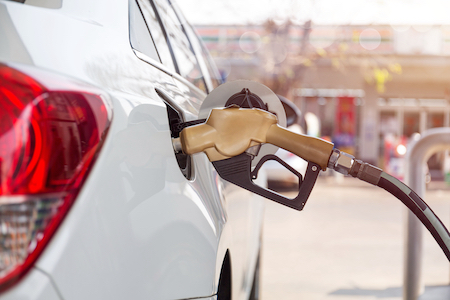How high can gas prices climb? Sometimes it seems like you’re standing at the craps table, rolling the dice. How much will you pay today? And where will you have to cut back in the next week in order to be able to afford it?
What if it didn’t have to be that way? What if your car functioned well and was as efficient as possible? You found easy ways to improve gas mileage, and it ultimately saved money every time you pulled up to the pump.
With proper auto repair techniques, you’ll know your car is in great condition, operating well, and working hard to save you money.
But what auto repair techniques are we talking about? What can you do to keep all 30,000 parts on your vehicle in the best condition possible?
Your car is an investment, and to keep it running smoothly, it’s essential to take care of it properly. Regular maintenance and repair work are crucial for ensuring your car’s longevity and performance. Here are five tips to keep your vehicle working better.
How servicing at regular intervals actually helps your car work better
Your vehicle has become one of the most expensive assets you own. That alone should give you ample reasons to take care of it. That’s why scheduling maintenance visits regularly is a crucial part of ownership.
Regular car maintenance helps identify and fix potential issues before they become more serious problems. This proactive approach to vehicle maintenance can prevent costly repairs down the road.
During a service, the motor oil and other fluids are checked and replaced if necessary. This helps to keep the engine running smoothly and efficiently, improving performance and fuel economy.
Regular car maintenance helps to ensure that your vehicle is safe to drive. Worn brakes, worn tires, and other safety-critical components can be identified and replaced during a service visit, reducing the risk of accidents on the road.
Regular maintenance helps extend the lifespan of your vehicle by ensuring that it is functioning correctly and not subjected to excessive wear and tear. Performed regularly, it can also help maintain your vehicle’s resale value. A well-maintained car with a comprehensive service history is more attractive to potential buyers and is likely to command a higher price.
When is your next maintenance visit?
You’ve changed your oil filter – how about your air filter?
Some maintenance items are second nature. You might even have a sticker on your window reminding you when your next oil change should be.
The air filter is often forgotten. Yet it’s responsible for keeping debris, dust, and other contaminants out of the engine. A clean air filter “breathes” clean air.
Over time, the air filter can become clogged, reducing air flow and negatively impacting performance. Replacing your air filter every 12,000 miles or as your car’s manufacturer recommends will help keep your engine breathing easier and working better.
Your dashboard is trying to tell you something
Your car’s dashboard is full of warning lights and gauges that provide you with important information about your vehicle’s performance. Pay attention to them and have your car checked if any warning lights appear.
If the engine warning light comes on, it is typically a sign of a problem with the engine’s internal management system. It could be anything from a faulty sensor to a more serious issue with the engine itself.
If the oil pressure light comes on, it could indicate a problem with the engine’s oil system, such as low oil levels or a clogged oil filter. This can cause serious damage to the engine if not addressed promptly.
If the battery warning light comes on, it could indicate that the charging system is not working properly. This could be due to a failing alternator, battery, or another charging system component.
If the tire pressure light comes on, it could indicate that one or more tires are under-inflated, which can impact handling and fuel efficiency.
If the brake warning light comes on, it could indicate a problem with the braking system, such as low brake fluid levels or worn down brake pads. This is a critical safety issue that should be addressed immediately.
See something else illuminated on your car’s dashboard? A quick stop at your mechanics will pinpoint the problem and reach a solution.
Using cruise control and monitoring your sensors
Cruise control can help maintain a consistent speed, reducing fuel consumption and helping to prevent overuse of the accelerator. All of these can wear out the engine faster.
Of course, real life means you’re often in positions where cruise control isn’t possible. You put your sensors through everyday stress, and rely on them to keep you, your car, and those around you safer.
Have you noticed something a little “off?” A sensor that doesn’t seem to be up to top performance?
Sensors are a part of modern technology. One issue can easily lead to bigger problems – you might not even be aware of it because of how technology works together.
If you have identified issues with your vehicle’s performance, it’s more important than ever to dig deep and find the solution. Safety and efficiency depend on it.
Be good to your engine every time you drive
The way you drive can significantly impact your car’s performance. Avoid excessive idling, rapid acceleration, and hard braking, as these can strain the engine unnecessarily.
Additionally, drive at a steady pace and avoid overloading your vehicle, as this can reduce fuel efficiency and put extra stress on the engine.
Stick with guidelines recommended by your car’s manufacturer
It’s essential to follow the manufacturer’s recommendations for maintenance and repair. The manufacturer knows your car best and has specific guidelines to ensure its optimal performance. By following these guidelines, you can avoid costly repairs, improve fuel efficiency, and extend the life of your vehicle.
What auto repair techniques do you rely on?
Today’s car owners are keeping their vehicles for longer than ever before. Maybe it’s because of the price tag. Maybe it’s because of their reliability.
Whatever the reason, the best way to get the most out of your car is to schedule regular maintenance and use techniques that will ensure a long life and efficiency every time you take it out for a drive.
How can we help you get the most out of your car?


